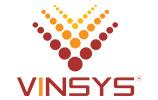Fast Track To Core Java 17 Programming For OO Developer (TT2104)
Engage in the expert-led TT2104 course and enjoy an immersive skill development learning experience. You will be guided by our experienced trainers, who have shared their knowledge for more than ten years now. The course lets you dive deep into the Java platform and Java Standard edition within a practical setting and utilizing the development environment (IDE). You will master the Java development kit (JDK), solidifying the principles of inheritance, interfaces, abstract classes, OO development, polymorphism, and more. The approach of the course equips you to proficiently design robust backend systems and software applications and contribute to large-scale enterprise projects.
The course is focused on the application of acquired skills in organizations, enabling you to take action and immediately utilize the concepts in it. Learners and professionals will actively engage in building applications, implementing custom exception handlings, and crafting subclasses throughout the course. Additionally, you will explore the advanced aspects of Java programming and other topics like grasping functional programming through lambda expressions, harnessing the collection API, working with generics, and more. The course lets you explore and understand Java Modular Systems and gain proficiency in working with collections in Java, like lists, sets, and queues. By the end of the course, you will have the power to become the master of Java Development Kit and implement the desired skills to navigate your integrated development environment to finally develop intricate Java-based programs.
Loading...
Objectives
After the successful completion of the course, learners will be able to:
• Acquire a comprehensive mastery of the Java platform and Java Standard Edition
• Utilize tools and seamlessly navigate the Java ecosystem
• Develop proficiency in executing Java applications and managing dependencies
• Engage in hands-on with Java Development Kit (JDK)
• Integrate with essential components like IDE into your daily programming toolkit
• Comprehend and apply crucial OO principles
• Utilize the iterators and sorting collections to enable and manage data efficiently within the Java programs
• Master the utilization of collection codes in Java and comprehend the various collections and implementations
• Build proficiency in inheritance, interfaces, abstract classes, and polymorphism
• Engage in real-life programming challenges during interactive lab sessions
• Utilize arrays, records, packages, and utility classes
• Manage and implement try/catch blocks with multiple exceptions
• Explore generics, lambda expressions, functional interfaces, and the Collection APIs
• Tackle intricate programming tasks
• Elevate coding skills to the advanced level
• Develop a Java exception-handling experience and learn to define customer exceptions
• Create a more reliable and fault-tolerance code
• Understand the impact on accessibility and visibility to explore the Java Modular Systems
• Enhance the efficient Java applications
• Dive into specific Java 17 features covered like Swift expressions, pattern matching, or text blocks
• Record immutable data and features to a comprehensive understanding of the latest advancements in Java programming
Audience
The course is at an introductory level, allowing the target audience seeking to broaden their skills in Java programming to have a go at it.
• Developers, IT professionals, and Software Engineers have hands-on experience in programming in either OO programming language (C# or C++) or other.
• Learners who need to reinforce sound Java coding practices immediately.
Fast Track To Core Java Prerequisite
For an optimal learning experience and to fully capitalize on the advantages of the course, you must have hands-on programming experience in another OO programming language. The course is not suitable for those with no programming experience or who are not developers.
Course Outline
Module 1: The Java Platform
• Introduce the Java Platform
• Explore the Java Standard Edition
• Discuss the lifecycle of a Java Program
• Explain the responsibilities of the JVM
• Executing Java programs
• Garbage Collection
• Documentation and Code Reuse
Module 2: Using the JDK
• Explain the JDK's file structure
• Use the command line compiler to compile a Java class
• Use the command line Java interpreter to run a Java application class
Module 3: The Eclipse Paradigm
• Become more familiar with Eclipse workbench concepts
• Explore the paradigm used by Eclipse, consisting of editors, views, and perspectives in detail
• Introduce some commonly used views
• Explain Perspectives
Module 4: Writing a Simple Class
• Write a Java class that does not explicitly extend another class
• Define instance variables for a Java class
• Create object instances
• Primitives vs. Object References
• Implement a main method to create an instance of the defined class
• Java keywords and reserved words
Module 5: Adding Methods to the Class
• Write a class with accessor methods to read and write instance variables
• Write a constructor to initialize an instance with data
• Write a constructor that calls other constructors of the class to benefit from code reuse
• Use this keyword to distinguish local variables from instance variables
Module 6: Language Statements
• Arithmetic operators
• Operators to increment and decrease numbers
• Comparison operators
• Logical operators
• Return type of comparison and logical operators
• Use for loops
• Switch Expressions
• Switch Expressions and yield
Module 7: Using Strings and Text Blocks
• Create an instance of the String class
• Test if two strings are equal
• Perform a case-insensitive equality test
• Contrast String, StringBuffer, and StringBuilder
• Compact Strings
• Text Blocks
• Unicode support
Module 8: Fields and Variables
• Discuss Block Scoping Rules
• Distinguish between instance variables and method variables within a method
• Explain the difference between the terms field and variable
• List the default values, for instance variables
• Final and Static fields and methods
Module 9: Specializing in a Subclass
• Constructing a class that extends another class
• Implementing equals and toString
• Writing constructors that pass initialization data to the parent constructor
• Using the instance to verify the type of an object reference
• Pattern matching, for instanceof
• Overriding subclass methods
• Safely casting references to a more refined type
Module 10: Using Arrays
• Declaring an array reference
• Allocating an array
• Initializing the entries in an array
• Writing methods with a variable number of arguments
Module 11: Records
• Data objects in Java
• Introduce records as carriers of immutable data
• Defining records
• The Canonical constructor
• Compact constructors
Module 12: Java Packages and Visibility
• Use the package keyword to define a class within a specific package
• Discuss levels of accessibility/visibility
• Using the import keyword to declare references to classes in a specific package
• Using the standard type naming conventions
• Visibility in the Java Modular System
• Correctly executing a Java application class
• The Java Modular System
• Defining Modules
Module 13: Utility Classes
• Introduce the wrapper classes
• Explain Autoboxing and Unboxing
• Converting String representations of primitive numbers into their primitive types
• Defining Enumerations
• Using static imports
• Deprecating classes and methods
Module 14: Object-Oriented Development Inheritance and Polymorphism
• Write a subclass with a method that overrides a method in the superclass
• Group objects by their common supertype
• Utilize polymorphism
• Cast a supertype reference to a valid subtype reference
• Use the final keyword on methods and classes to prevent overriding
Module 15: Interfaces and Abstract Classes
• Define supertype contracts using abstract classes
• Implement concrete classes based on abstract classes
• Define supertype contracts using interfaces
• Implement concrete classes based on interfaces
• Explain the advantage of interfaces over abstract classes
• Explain the advantage of abstract classes over interfaces
Module 16: Introduction to Exception Handling
• Introduce the Exception architecture
• Defining a try/catch blocks
• Checked vs. Unchecked exceptions
Module 17: Exceptions
• Defining your own application exceptions
• Automatic closure of resources
• Suppressed exceptions
• Handling multiple exceptions in one catch
• Enhanced try-with-resources
• Helpful NullPointerException(s)
Module 18: Building Java Applications
• Explain the steps involved in building applications
• Define the build process
• Introduce build scripts
• Explain the standard folder layout
• Resolving project dependencies
• Tutorial: Importing code Using Maven
Module 19: Introduction to Generics
• Generics and Subtyping
• Bounded Wildcards
• Generic Methods
• Legacy Calls To Generics
• When Generics Should Be Used
Module 20: Introducing Lambda Expressions and Functional Interfaces
• Understanding the concept of functional programming
• Understanding functional interfaces
• Lambdas and type inference
Module 21: Working with Lambda Expressions
• Writing lambda expressions
• Explore the difference between anonymous classes and lambda expressions
• Consumer, Predicate, and Function interfaces
Module 22: Collections
• Provide an overview of the Collection API
• Review the different collection implementations (Set, List, and Queue)
• Explore how generics are used in collections
• Examine iterators for working with collections
Module 23: Using Collections
• Collection Sorting
• Comparators
• Using the Right Collection
• Lambda Expressions in Collections
Module 24: Sealed Classes
• Introduce sealed classes
• The sealed and permitted modifier
• Sealed interfaces
• Sealed classes and pattern matching
Module 25: Streams
• Understanding the problem with collections in Java
• Thinking of program solutions in a declarative way
• Use the Stream API to process collections of data
• Understand the difference between intermediate and terminal stream operations
• Filtering elements from a Stream
• Finding element(s) within a Stream
• Collecting the Elements from a Stream into a List
Module 26: Collectors
• Using different ways to collect the items from a Stream
• Grouping elements within a stream
• Gathering statistics about the numeric property of elements in a stream
Choose Your Preferred Mode

Online Training
- 3 days Instructor-led Online Training
- Experienced Subject Matter Experts
- Approved and Quality Ensured training Material
- 24*7 leaner assistance and support

Corporate Training
- Blended Learning Delivery Model (Self-Paced E-Learning And/Or Instructor-Led Options)
- Course, Category, And All-Access Pricing
- Enterprise-Class Learning Management System (LMS)
- Enhanced Reporting For Individuals And Teams
- 24x7 Teaching Assistance And Support
FAQ’s
What is the course duration?
Fast Track to Core Java 17 Programming for OO Developers (TT2104) is a 04-days course.
What are the related courses?
We offer similar courses but different skill levels. Here is the list of related courses that can be taken instead of TT2104 and those that must be taken after the completion of it.
Related Courses-
• Basic Java 17 Programming for Developers New to OO (C, Mainframe, COBOL) (TT2120)
• Getting Started with Programming, OO & Java Basics for Non-Developers (TT2000)
• Introduction to Core Java Programming for OO Experienced Developers (C#, C++, etc.)
Take after courses-
• Java REST Essentials
• Java Microsoft Boot Camp
• Test Driven Development (TDD) and Unit Testing/Junit Essentials (TT3503)
• Fast Track to Jakarta EE (JEE) Web Development with Selvets/JSPs, JNDI, EL, JPA, WebSockets, Security, and More (TT5100)
• RxJava 2: Reactive Programming in Java
• Mastering Spring 5x Developer Boot Camp (TT3335)
• Intermediate Java | Next-Level Java Developer Skills (TT2211)
• Core Spring 5.x and Spring Boot 2.x Quick Start (TT3320)
What does the course aim to measure in learners?
The course enables learners to develop a deep understanding of the Java platform and the Java Standard Edition. You will become skilled in using lambda expressions, coding skills, and more. Vinsys provides continuous support throughout the course and enables you to understand and apply essential Java principles.
Why should I enroll in this course by Vinsys?
The Fast Track to Core Java 17 Programming for OO Developers (TT2104) course is simple with the content and includes hands-on lab sessions that will make sure that you effectively learn the practical application of the Java applications and core concepts. The experts at Vinsys will guide the learning schedule while reviewing and managing your queries.
Can a beginner enroll in this course?
In order to enroll for the course, learners should have prior experience in developing OO software applications, whether from C++ or C# or any other programming language. Beginners in the field of Java can explore the course objectives to have a better understanding of it.
Who should do this course?
The course is designed for IT professionals, Software Engineers and Developers.
How is the course program carried out at Vinsys?
Our courses are delivered through instructor-led training (ILT), private group training, and virtual instructor-led training (vLIT). You can choose your learning path to upskill with Vinsys' subject matter experts upon customizing training needs to ensure 100% results. Effective course material accessed throughout the program makes learning about concepts beyond the class easier. We boost your odds of success by helping you prepare for required exams and earn the certification.
What are the career opportunities after completing this course?
After learning the course concepts, you can choose to enhance your real-world experience in your current organization at a higher position. You can even get hired as a Core Java Developer, Senior Java Developer, Java Lead, Java Backend Developer, Data Engineer, and other jobs related to Java programming.
What is the basic average salary of a Core Java developer?
The average Java Developer salary in the USA is $117,000 per year. Most experienced and core learning professionals can make up to $146,653 annually.
Why Vinsys

Reviews
As a developer who does not have in-depth Java knowledge, this course has helped me learn quickly and implement the concepts at my organization. I enjoyed a hands-on lab session with Vinsys and learned to use arrays, records, packages, and utility classes. The course has enhanced my ability to create robust and efficient Java applications. Vinsys' trainers have resolved my queries on an immediate basis, letting me have a thorough experience of the course concepts. Thank you!
My team of developers, having basic knowledge, enrolled in Fast Track to Core Java 17 Programming for OO Developers (TT2104), and within 04 days, they were able to deal with the dependencies on the Java project. The course miracle learnings have enabled my team to take the coding to the next level and define their own expectations while handling multiple exceptions at the same time. I am thankful to Vinsys for helping my team create a more reliable and fault-tolerance code. I am looking forward to other course training from Vinsys!


